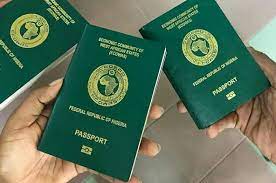
The Namibian government is currently engaged in a comprehensive legal analysis of the recent unprecedented Supreme Court ruling that mandates the recognition of same-sex marriage formalised outside the country, according to Attorney General Festus Mbandeka, the government’s principal legal advisor.
“This is a momentous judgement with far-reaching legal repercussions,” Mbandeka stated. “As a consequence, the government is currently engaged in a thorough legal evaluation of this constitutional judgement prior to deciding upon the appropriate next steps within the confines of our constitutional framework,” he added in a media release.
He indicated that a public response will be issued once the analysis is concluded, at a time deemed suitable. Mbandeka stressed that even though Namibia upholds the rights to freedom of speech and expression, such liberties should be exercised prudently with regard to the judgement.
He highlighted that it’s crucial for these freedoms to be utilized constructively, responsibly, and respectfully in a manner that doesn’t infringe upon the rights of others or undermine the constitutional mandate of any of the three branches of the state.
This groundbreaking ruling, a considerable stride toward LGBTQ+ rights in Namibia, has exposed deep-seated societal divisions over the acknowledgement of same-sex partnerships.
The crux of the same-sex marriage case was the residency applications of a German woman who wedded a Namibian woman in Germany, and a South African man who married a Namibian man in South Africa – the only African country that currently permits same-sex marriage.
In their ruling, four judges held that the refusal by the Ministry of Home Affairs to formally recognize same-sex marriages performed outside Namibia violates the constitutional guarantees of equality and dignity. They mandated that the unions of the two couples be acknowledged within Namibia.
The effect of this ruling is that foreign partners in same-sex marriages are awarded the same residency rights in Namibia as are traditionally conferred to partners in heterosexual marriages.
Vipuakuje Muharukua, a member of the Popular Democratic Movement (PDM), expressed opposition to the ruling, claiming it contradicts Namibia’s ethos, aspirations, and desires.
He reiterated that it is Parliament’s responsibility to reflect Namibia’s values and the direction the nation desires to take in law and constitution. Muharukua also supported the notion of a referendum under the Electoral Act, 5 of 2014.
McHenry Venaani, the leader of PDM, resonated with Muharukua’s views, stating that the PDM does not support the recognition of LGBTQI+ marriages. However, he underscored that the PDM does uphold the human rights of the LGBTQI+ community, as stated in the constitution.
Venaani further emphasized the legislative power in deciding the fate of same-sex marriages, stating that the LGBTQI+ community should advocate for recognition and lobby the legislature if they seek recognition for their marriages.
He also shared that the PDM has prepared a motion to be discussed in the National Assembly, aimed at instigating a debate on the society’s response to LGBTQI+-related issues.
President Hage Geingob, on the other hand, refrained from entering the discussion last week, choosing not to comment on the contentious ruling which has drawn an equal measure of praise and criticism.
In contrast, traditional leaders have vehemently expressed their opposition, arguing that the struggle for Namibia’s independence was never about LGBTQ+ rights. Last week, the Council of Traditional Leaders joined the debate, strongly condemning what they referred to as “same-sex marriage and the LGBTQ campaign”.
The council’s chairman, Chief Immanuel /Gaseb, said, “With this ruling, the court has exhibited a complete disregard for our esteemed traditions, our dignified culture, and our values.”
Additionally, eight northern traditional authorities have expressed their discontent with what they perceive as the “intrusion of Western culture into Namibian culture”. They have called upon the head of state, parliament, and the Supreme Court to overturn this decision.












